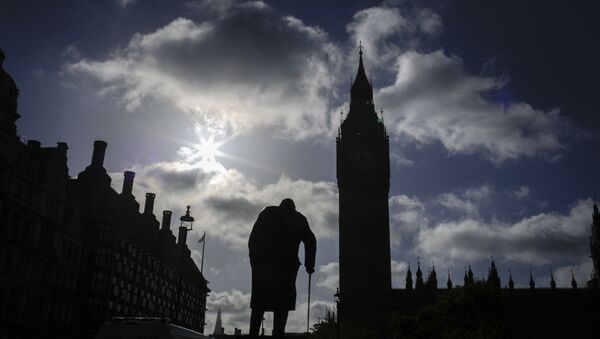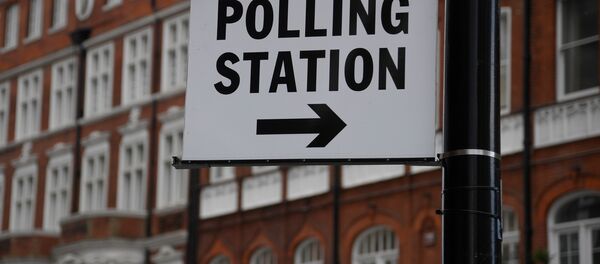May needed to get 326 seats for her party to gain an absolute majority.
The prime minister is expected to meet with Queen Elizabeth II, and to make a statement, while an announcement on resignation is not ruled out as well. However, the BBC reported earlier in the day, citing its sources, that May did not intend to leave the office.
Failed expectations
During the 2015 election, the Tories led by David Cameron obtained an absolute majority in the parliament, receiving 330 seats.
May, who became the UK prime minister following Cameron's resignation, triggered by the Brexit vote, did not plan to hold early elections initially. However, in April, the politician changed her mind, explaining the need to have a more united country ahead of tough talks with the European Union on the country's withdrawal.
The results of the elections showed that May, who triggered the election to strengthen her positions, was defeated, thus repeating the fate of her predecessor Cameron, who conducted a referendum on Brexit being sure that the country would choose to remain in the EU.
Disappointing result
The election outcome turned out to be a blow not only to May but to First Minister of Scotland Nicola Sturgeon as well.
If at the elections in 2015, the Scottish National Party (SNP) managed to increase its representation in the parliament from 6 lawmakers to 56, this year the party lost the mandates even in Scotland, in a region where SNP had no competitors before.
"It’s a disappointing result. We’ve lost some tremendous MPs [members of parliament]," Sturgeon said.
The Scottish first minister stressed that she did not expect such a sharp rise of the Labour Party, adding that May was now in a very difficult situation.
Coalition scenarios
In the situation of a "hung parliament," the government retains powers until the formation of a new one, even if some of the lawmakers lost their mandates.
In general, there are two possible scenarios for the United Kingdom now — the creation of a minority government or the forming of a coalition, either formal or informal. The process of coalition formation might take an indefinite period of time, though in 2010 it took five days.
At the same time, Sky News reported, citing its sources, that the DUP would give its informal backing to May.
Another possible coalition could be formed by the Labour, the SNP, the Liberal Democrats and the Green Party, however, the LibDems already ruled out any coalition deals with any of the two main parties.
Earlier in the day, UK Shadow Chancellor of the Exchequer John McDonnell said that the Labour Party had no plans of forming a coalition in the parliament and instead supported the creation of a minority government due to the unstable positions of the Conservative Party and the incumbent prime minister.
Speculations of the possible resignation of May add even more uncertainty to the issue.




